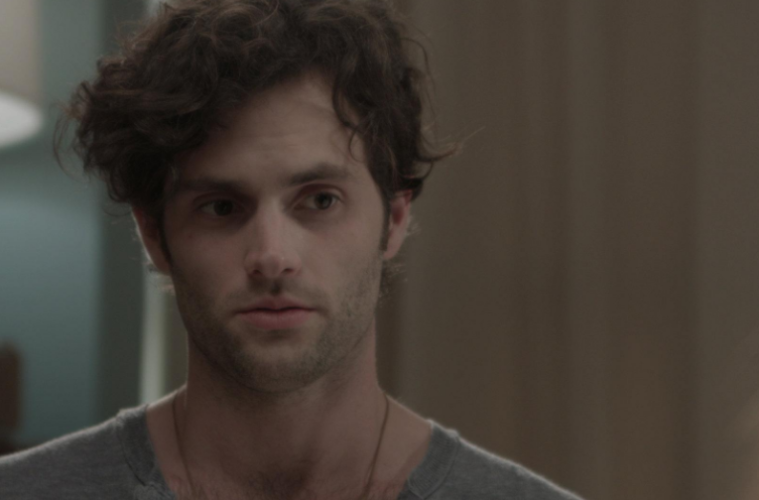Among the cacophonous election coverage and myriad issues sweeping our country, the gargantuan cost of higher education emerges as a (still) rising concern. With the annals of cinema relatively bereft of material on the subject, few narrative films have touched on it so pointedly or deftly as The Paper Store, directed by Nicholas Gray.
Co-written by Katharine Clark Gray – based on her play 516 (five-sixteen) – we are thrust into the hands of narrator Annalee (Stef Dawson), a college dropout who, after successfully running a paper forgery operation, is enlisted by Sigurd (a very game Penn Badgley) to forge his entire course-load for an undergrad-level cinema class while he works on his thesis. What follows, against Annalee’s better judgment, is a relationship between the two. She divulges as much to Sigurd’s professor Marty Kane (Richard Kind) in a forged paper at the opening. As he reads her words, delivered with pure vitriol through mascara-laden raccoon eyes, we could spiral out of control into a full-on romantic indie drama, but the film resists.

Though it takes a minute to find its legs, The Paper Store beckons one to stick around as it hits full stride. With Annalee mired in Sigurd’s various papers, their conversations are wrought with sentiments typical of overtly pretentious film school academics. The result is, and should be, a bit grating. ‘It’s a film-asshole thing, and you love it,’ Sigurd retorts to Annalee in the midst of one of their several David Cronenberg-prompted musings. It’s carried through with enough winking self-reflexivity that one can ultimately swallow it in order to better digest the playful indictment of higher education at large. The Grays invite us to tag along as they navigate the pitfalls of the potentially superfluous realm of greater academia – and what better way to elucidate that than through pseudo-intellectual banter among, as they so eloquently put, ‘a coven of criminal navel gazers?’
An ultimate exercise in unreliable narration, the film grants us access to the varying and quite flawed perspectives of its leads. They’re barely likable, and while this acts as a potential derailment, it doesn’t take too long to realize that they’re not intended to be. Badgley shines as he achieves this impeccable balance, but Dawson less so. On paper, Annalee’s words are relatable but roll off her tongue with an element of hypocrisy. Although this is a byproduct of said unreliable narration in the first act, it leaves in its wake something stilted that her performance just barely manages to shake off; alleviated only when the film threatens (but mercifully avoids) going full Stand and Deliver on you in Act Three. Kind’s turn as the lifelong academic just sustaining himself for a hopeful shot at tenure proves the film’s greatest asset – a beautiful piece of casting, to be sure.

When it’s not distracted by film school chit chat, or even the sordid and ill-advised affair between its leads, The Paper Store is a wonderfully palpable interrogation about the ultimate value of an institution our society holds so dear. In the beats that tackle this head on (Sigurd’s squabble with an advisor over credit hours is especially delightful), it serves as both a harsh indictment and warm celebration. It’s a tough and impressive juggle, paying off in spades for those willing to follow its lead.
The Paper Store will screen at the Louisville International Festival of Film on October 15 and the Syracuse International Film Fest on October 19.

